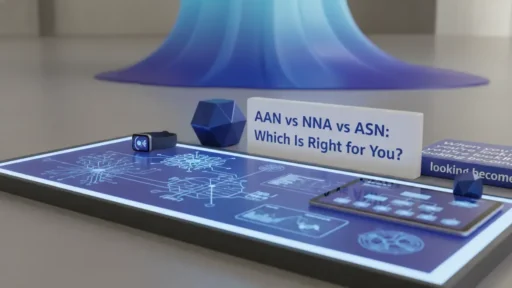In the digital age, the way businesses handle agreements is evolving rapidly. Electronic contract signing has emerged as a game-changer, streamlining processes and enhancing efficiency. Gone are the days of waiting for physical documents to be mailed, signed, and returned. Now, agreements can be executed in minutes with just a few clicks.
This innovative approach not only saves time but also reduces the environmental impact of paper-based transactions. As companies strive to keep up with the fast-paced business environment, electronic signatures offer a secure and legally binding solution. They ensure that businesses remain agile and responsive to market demands.
Moreover, electronic contract signing enhances the user experience, making it easier for parties to review and approve documents from anywhere in the world. As more organizations embrace this technology, understanding its benefits and implications becomes crucial for staying competitive in today’s market.
Understanding Electronic Contract Signing
Electronic contract signing involves using digital signatures to authenticate parties’ consent on documents. These signatures rely on cryptographic methods, ensuring security and preventing tampering. Global regulations recognize electronic signatures, giving them legal validity similar to handwritten ones.
Adopting electronic signing speeds up contract processes. Parties don’t need physical meetings, which eliminates logistical challenges. Documents are signed online, reducing delays and enabling quicker business transactions.
Security features enhance trust in electronic contracts. Advanced encryption protects data, while audit trails record every action, providing a transparent record of all interactions. This transparency helps in compliance and dispute resolution.
Using electronic contracts supports sustainable practices by diminishing paper usage. Organizations adopting electronic signing cut down on filing space, contributing to cost efficiency. Moreover, accessing and managing digital contracts becomes more streamlined, boosting productivity.
Incorporating electronic signing into business operations aligns with the digital transformation trend. As more industries adopt this technology, understanding its implications becomes essential for staying competitive.
Benefits of Electronic Contract Signing
Electronic contract signing offers numerous advantages that enhance business operations and competitiveness in the digital era.
Speed and Efficiency
Electronic contract signing significantly enhances speed by allowing immediate document preparation and distribution. Parties can review and sign contracts electronically within minutes, eliminating delays commonly associated with physical documents. Organizations streamline workflows and reduce time-to-execution, ultimately accelerating business processes.
Cost Savings
Cost savings result from the reduction of expenses linked to paper-based contracts, such as printing, mailing, and storage. With electronic signing, companies eliminate the need for physical resources and related logistics, lowering operating costs. This cost-effectiveness allows businesses to redirect resources towards core activities, boosting financial efficiency.
Legal Validity
Electronic signatures possess legal validity, akin to handwritten signatures, under global regulations. They comply with laws such as the E-SIGN Act in the US and the eIDAS Regulation in the EU. This ensures that electronically signed contracts hold enforceable status in court, providing confidence in their legality and promoting international business transactions.
Popular Electronic Contract Signing Platforms
In the digital landscape, numerous platforms offer electronic contract signing solutions that enhance business efficiency. These platforms streamline the contract process while ensuring security and legal compliance.
DocuSign
DocuSign is a pioneering platform in electronic contract signing. It offers a user-friendly interface that helps businesses easily prepare, send, and sign agreements. With a robust set of features that include real-time tracking of document status, encryption for security, and integration with popular business tools like CRM systems and cloud storage, DocuSign prioritizes flexibility and compatibility. The platform is recognized for its compliance with global e-signature laws, reinforcing its credibility and reliability for international transactions.
Adobe Sign
Adobe Sign, part of the Adobe Document Cloud, provides a comprehensive solution for electronic signatures. It supports seamless workflows by integrating with Adobe’s ecosystem and hundreds of third-party applications. The platform emphasizes secure document management through features like comprehensive audit trails and advanced authentication methods. Adobe Sign adheres to stringent legal standards across various jurisdictions, making it a trusted choice for businesses seeking an end-to-end document solution. Users benefit from automation capabilities that significantly reduce processing time in contract execution.
HelloSign
HelloSign, now part of Dropbox, offers a simple yet powerful tool for electronic signatures. Its ease of use makes it ideal for small to medium-sized enterprises that prioritize straightforward contract processes. The platform provides features such as template management, team collaboration tools, and flexible signing options that accommodate various business needs. HelloSign ensures compliance with key electronic signature regulations, providing legal enforceability to signed documents. By focusing on clarity and efficiency, HelloSign streamlines workflows and helps businesses maintain agility in a competitive market.
Security and Privacy Concerns
Electronic contract signing boosts efficiency, but it raises security and privacy concerns. Addressing these concerns ensures trust and compliance in digital transactions.
Encryption and Authentication
Strong encryption safeguards electronic contracts. Advanced cryptographic methods protect documents from unauthorized access, ensuring data integrity. Authentication verifies signatory identities, utilizing multi-factor methods like email verification and biometric authentication. These layers prevent fraud and ensure only legitimate parties sign contracts.
Data Protection Measures
Robust data protection measures are essential. Leading platforms comply with regulations such as GDPR and HIPAA, ensuring data is handled responsibly. Access controls restrict document access to authorized users, preventing information leaks. Audit trails record every contract action, aiding in compliance and dispute resolution. Proper implementation of these measures secures privacy and builds user confidence in electronic contract signing.
Legal Considerations
Electronic contract signing remains legally binding when appropriately executed, making it a vital tool for businesses worldwide. Understanding legal considerations can ensure compliance and prevent disputes in digital transactions.
E-Signature Laws
E-signature laws vary globally but share common frameworks for validating electronic contracts. The United States follows the Electronic Signatures in Global and National Commerce (ESIGN) Act and the Uniform Electronic Transactions Act (UETA), both of which grant electronic signatures the same legal status as handwritten ones. The European Union enforces the eIDAS Regulation, providing a uniform standard for electronic identification and trust services. These laws ensure that electronic contracts are valid, enforceable, and recognized across different jurisdictions, aiding international business dealings.
Ensuring Compliance
To ensure compliance, businesses must adhere to relevant e-signature laws and regulations. They should implement secure authentication processes, such as multi-factor authentication and identity verification, to validate signatories’ identity. Using platforms certified for industry-specific regulations, like GDPR for EU data protection or HIPAA for healthcare data in the U.S., can further solidify compliance. Additionally, maintaining audit trails for document transactions provides transparency and supports legal requirements, enabling easy resolution of disputes. Understanding the specific legal environment and adopting compliant technology measures is critical for leveraging electronic contract signing effectively and securely.
Best Practices for Electronic Contract Signing
Implementing electronic contract signing effectively involves understanding and adhering to key best practices. These practices ensure security, compliance, and efficiency in digital transactions.
- Choose a Reliable Platform: Select platforms like DocuSign or Adobe Sign, known for robust security protocols, compliance with global regulations, and user-friendly interfaces.
- Ensure Document Clarity: Present contracts in clear, concise language with no ambiguities. Structure documents logically and include all necessary clauses to avoid misunderstandings.
- Use Strong Authentication: Enhance security by utilizing multi-factor authentication methods, such as SMS codes or biometric verification, to confirm signatories’ identities.
- Maintain Audit Trails: Keep detailed logs of all document interactions to provide verifiable records, crucial for legal disputes and compliance audits.
- Educate All Parties: Ensure that all involved parties understand the electronic signing process, including how to access documents and verify signatures.
- Regularly Update Security Measures: Continuously evaluate and improve security protocols to protect against evolving cyber threats and ensure data integrity.
By following these best practices, businesses can maximize the advantages of electronic contract signing while maintaining high standards of security and compliance.
Discover the Power of BlueNotary:
Integrate your Business, Title Company, or Law Firm to Satisfy your Customers and Decrease Turnaround
Get a document Notarized/Sign-up
Join the Free Notary Training Facebook Group
Conclusion
Electronic contract signing stands as a pivotal advancement in modern business operations, offering unparalleled efficiency, security, and sustainability. By embracing this technology, businesses can streamline their contract processes, cut costs, and enhance global transactions. As more industries pivot towards digital solutions, understanding and implementing electronic signatures becomes crucial for maintaining a competitive edge. With robust security measures and compliance with global regulations, electronic contract signing not only meets legal standards but also fosters trust and reliability in digital agreements. Adopting best practices ensures businesses leverage these benefits effectively, securing a future-ready approach to contract management.
Frequently Asked Questions
What is electronic contract signing?
Electronic contract signing is the process of using digital signatures to verify and execute agreements online. It involves the use of cryptographic methods to ensure security and prevent tampering. This method allows for quick and efficient document handling, making agreements accessible and executable from anywhere.
Is an electronic signature legally binding?
Yes, electronic signatures are legally binding in many countries. Laws like the U.S. ESIGN Act and EU’s eIDAS Regulation grant electronic signatures the same legal status as handwritten ones, ensuring contracts signed electronically are enforceable in court.
What are the benefits of electronic contract signing?
Electronic contract signing offers numerous benefits, including increased speed and efficiency, reduced paper usage and costs, enhanced security, and improved user experience. It simplifies the signing process, facilitates international transactions, and supports sustainable practices by decreasing reliance on physical documents.
How secure are electronic signatures?
Electronic signatures are highly secure when using robust authentication methods like multi-factor verification and encryption technologies. Leading platforms comply with regulations such as GDPR and HIPAA to ensure data protection. Features like audit trails and access controls further enhance security and prevent unauthorized access.
Which platforms are recommended for electronic contract signing?
Popular platforms for electronic contract signing include DocuSign, Adobe Sign, and HelloSign. DocuSign is known for its user-friendly interface and compliance with global laws. Adobe Sign offers comprehensive document management, while HelloSign is ideal for small and medium-sized enterprises due to its simplicity and collaboration features.
Can electronic contracts streamline business operations?
Yes, electronic contracts significantly streamline business operations by eliminating the need for physical meetings and document handling. This reduces logistical challenges and delays, allowing for quicker transaction times and resource allocation. The automation provided by electronic contracts boosts overall productivity.
What legal considerations exist for electronic contract signing?
Businesses must comply with electronic signature laws like the U.S. ESIGN Act, UETA, and EU’s eIDAS Regulation. Ensuring secure authentication processes and maintaining audit trails are essential for legality. Using certified platforms that adhere to industry-specific regulations helps ensure compliance and transparency.
How can businesses ensure effective implementation of electronic contract signing?
To implement electronic contract signing effectively, choose reliable platforms, ensure document clarity, use strong authentication methods, maintain comprehensive audit trails, educate involved parties, and regularly update security measures. These practices help maximize advantages while ensuring high standards of security and compliance.








